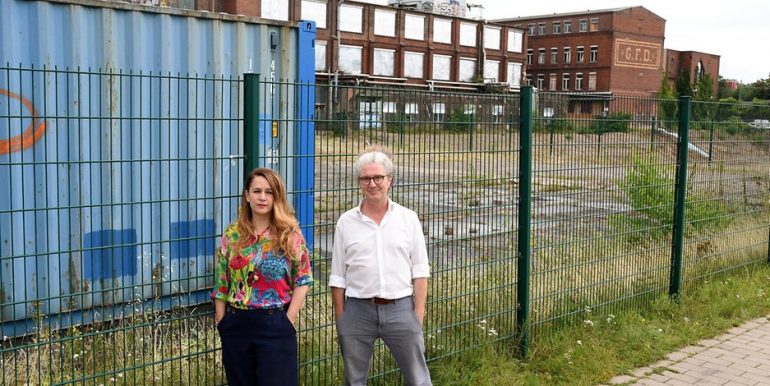cologne –
The city is full of investment properties, so there’s no need for another, says Anton Schneider, the former boss of Klockner-Humboldt-Deutz (KHD). The question of the future of the so-called Otto-und-Langen-Quartier in Mülheim is not only about the preservation of a historical heritage. “It is also about making sure that a historic opportunity for urban development is not wasted.” Hermann Holmann, a former Ford board member who is now a spokesman for the Cologne Cultural Council, sees it that way. The city should buy an area of six hectares with the former KHD headquarters and several old factory halls behind it, to clear the way for concepts developed in recent years at the initiative of the artist “Roum 13”.
It is clear to ex-car and machine makers: the place from which the inventions of the Cologne gas engine factory once drove the motorization of the world should again become a place of innovation, he told a press conference at “Villa Charlier”. said in. “In Deutz-Mulheimer Strasse. The day care center, moved here after the renovation of the former headquarters of the commercial management of KHD, shelters Anja Kolesek and Mark Lessel “Raum 13” and some supporters in their gym.
Doubts about willingness to support
On the Otto-und-Langen-Quartier, which has been animated over ten years with art, culture and countless urban development policy discussions, there is only one dilapidated container that the city administration has put up to support the artists. A sad symbol: the materials of establishments and workshops are stored here; locked behind a fence. Open-air events can be held here. But the artists are not able to get their property at the moment as there is no system of access for them in the city.
In the past few weeks, new doubts have arisen about the expressed willingness of the city administration to support ideas for community-oriented development of the district. Despite several clear and cross-party council proposals, city leaders are delaying the purchase of the site. Even before the summer break, politicians wanted the city to exercise its right of first refusal. Then the decision should be taken in the meeting of the main committee during the summer vacation. But then the city’s director, who is still responsible for property policy, Andrea Blom, was shocked by legal concerns and statements that talks were being held with Jamestown, the private company of Cologne entrepreneur Christoph Kahl.
The city has a right of first refusal for the territory.
Kahl bought the former KHD headquarters from previous owner Gottfried Egerbauer for $21 million. The city can now enter into a contract through an instrument of right of first refusal. Time is running out for Kahl as the city can only interfere with his property rights for a limited period of time. Kahl has announced that he is also looking to implement the city’s goals for the district as a private investor. How a profit-oriented company that promises profits to private financial investors can implement the community-oriented development of a model quarter for the city as a whole remains a mystery to Jamestown and Cologne’s top city until now. It is also not clear why the city administration is not implementing comprehensive and clear council resolutions.
Kolasek and Lesley withdrew from criticizing the administration and politics. It is important to them that their advertisement for the development of the district that combines many different uses and goals and in which art can be not only a decorative accessory but also a “driver of innovation” has a chance for practical implementation. Your supporters are already clear: “Politicians should not let the administration decide what they should do,” says Winfred Gellner of the Cultural and Scientific Advisory Board of “Room 13.”
The retired speaker of Cologne’s cultural office believes that the city administration is deliberately obstructing the idea. Apparently she takes too much effort and work and is afraid that something she’s never done might go wrong. Witich Rossmann, president of the Cologne DGB, attributed the politicians of the Cologne Council coalition: “Either politics is hidden behind the administration or it is not strong enough to assert itself. Both would be shameful.”
Heumarkt. demo on saturday
The demand that the city should buy the area and not leave it to a private investor will be emphasized once again, at a rally on the Huemarkt starting at 2 pm the following Saturday. Many supporters want to speak on stage.
Council Coalition representatives have also confirmed their presence, which once again describes the awkward position on the issue. They don’t want to protest against themselves. Gellner puts it diplomatically: “We are not demonstrating against something, but for something. It is an incentive for politicians to assert themselves.”

Web guru. Amateur thinker. Unapologetic problem solver. Zombie expert. Hipster-friendly travel geek. Social mediaholic.





